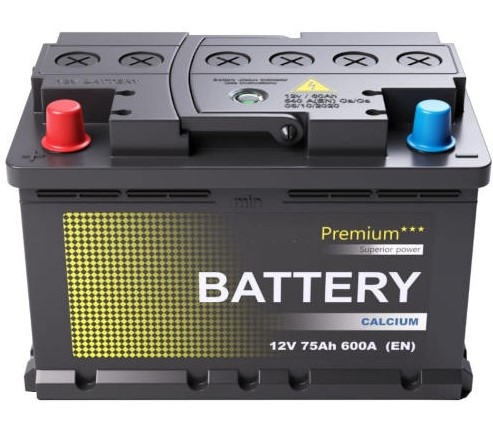Different types of generators like portable, standby, inverter, electric start, manual start, etc are available in the market. For any type of generator, the battery is crucial indeed. So, does a generator charge its own battery?
Standby generators with automatic transfer switches (ATS) have built-in battery chargers that recharge the battery when the generator is running. Among the portable generator, the electric start generator recharges the battery while running. Other types need manual charging using external battery chargers.
However, in this blog, I have covered everything related to recharge generator batteries. Without further ado, let’s get started.
The Role of the Battery in a Generator
Let’s explore the importance of a battery within the system of generators.
Battery as a Starting Mechanism
In many generators, especially portable ones, the battery plays a crucial role in starting the engine. When you pull the starter cord or push the electric start button, it triggers the battery to deliver a surge of electrical energy to the starter motor. This motor then initiates the engine’s rotation, allowing it to start running.
Battery for Control Panel and Monitoring
Generators also utilize batteries to power their control panels and monitoring systems. These control panels provide vital information about the generator’s status, including voltage output, frequency, and any error codes or malfunctions. The battery ensures that the control panel remains functional even when the generator is not actively producing electricity.

Does A Generator Charge Its Own Battery?
So, you have got the answer already.
You need an external charger if your generator lacks a built-in charging system. Don’t forget to match the battery type and charger while charging the battery. Please follow the manufacturer’s guidelines during recharge.
While most portable generators do not have automatic built-in charging systems, there are a few models available that offer this feature. Here is a list of portable generators with automatic built-in charging systems:
- Honda EU7000iS
- Generac GP3000i
- Westinghouse iGen4500DF
- Champion 3400-Watt Dual Fuel
- Yahamaha portable generator
- Duromax XP12000EH
The charge of the battery depends on some parameters. Let’s have a closer look.
- How long do you run the generator
- How often do you use the generator
- Amount of charge required to start
- Amount of charge stored while stating
- Age of the battery
How do I know when my generator’s battery needs to be charged?
It is crucial to know when you need to charge your generator battery. Here are a few indicators that can help you determine when it’s time to charge the battery:
Low Voltage:
If you notice a significant drop in voltage output from your generator, it could be a sign that the battery is running low. Check the voltage readings on the generator’s control panel or use a multimeter to measure the battery’s voltage directly. If the voltage is 12.4 volts or less, you should recharge it.
Difficulty Starting:
If your generator is having trouble starting or requires multiple attempts before it kicks in, it could be an indication of a weak battery.
Slow Cranking:
When starting your generator, pay attention to the speed at which the engine cranks. If the cranking speed is noticeably slower than usual, it may suggest that the battery is not providing enough power and needs to be recharged.
Battery Age:
Consider the age of your generator’s battery. Most batteries have a limited lifespan, typically ranging from 2 to 5 years.
Regular Maintenance Schedule:
Following a regular maintenance schedule for your generator is crucial. As part of the maintenance routine, check the battery’s charge level.
How do I recharge the battery?
You could use a commercial battery charger to recharge the generator’s battery. 9 Ampere-hour or 11 Ampere-hour battery chargers are best fit for 12-volt batteries. Don’t forget to follow the manufacturer’s manual while recharging.
If you are not confident enough you could consult a professional for recharging your battery.
What types of batteries do generators use?
Generators commonly use two main types of batteries:
- sealed lead-acid (SLA) batteries
- Flooded lead-acid batteries.
Here are the key features of each type:
Sealed Lead-Acid (SLA) Batteries:
- Maintenance-Free
- Leak-Proof Design
- Vibration and Shock Resistance
- Wide Temperature Range
- Long Service Life
Flooded Lead-Acid Batteries:
- Economical Option
- Easy Availability
- Deep Discharge Capability
- Easy Maintenance
- Suitable for High Power Output
FAQ
What happens if a generator battery is dead?
If the generator battery is dead, the generator will not start or function properly, rendering it unable to provide power during an outage or emergency.
Can a dead generator battery be recharged?
In most cases, a dead generator battery can be recharged using an external battery charger. However, if the battery is old or damaged, it may need to be replaced.
How can I prevent my generator battery from dying?
Regularly inspect and maintain the battery, ensuring proper charging and cleaning of any corrosion. Additionally, following a routine maintenance schedule for your generator can help prolong the battery’s lifespan.
How often should I replace my generator battery?
The lifespan of a generator battery can vary depending on usage, maintenance, and battery type. On average, generator batteries may need replacement every 2 to 5 years. Consult your generator’s manual and battery manufacturer’s recommendations for specific guidance.
Can You Use a Car Battery with a Generator?
Yes, it is possible to use a car battery with a generator, but it’s not the ideal solution for long-term or continuous use. Car batteries and generator batteries have some similarities, as they are both types of lead-acid batteries. However, there are important differences to consider. Car batteries are designed to provide short bursts of high current for starting the car’s engine, whereas generator batteries are optimized for sustained power output over a longer duration.
Related:
- How Many Amps Does A Generator Produce?
- How to Use Portable Generator During Power Outage? (Safest Way)
- Best Quiet Dual Fuel Generator (Under 70 dBA)
- Best Portable Generator Made In USA 2023 (Home, RV, Camping & DIY)
- What Can 3000-watt Generator Run? (Complete Guide!)
- How to Start Generator without Key?
Does A Generac Generator Charge Its Own Battery?
Yes, Generac generators are equipped with built-in automatic battery chargers, allowing them to charge their own batteries. But all the Generac generators dont charge their own battery. Only the Generac 15000 & 17500 and the electric and XP series offer this option.
Does A Predator Generator Charge Its Own Battery?
No, Predator generators do not typically have built-in automatic battery chargers to charge their own batteries. Predator generators are generally designed as portable models and often require manual charging of the battery using external battery chargers.
Does A Duromax Generator Charge Its Own Battery?
Yes, some models of Duromax generators have built-in automatic battery chargers that allow them to charge their own batteries. These generators are equipped with a charging system that monitors the battery’s charge level and automatically initiates the charging process when necessary.
Does A Honda Generator Charge Its Own Battery?
Yes, the Honda generator can charge its own battery. Honda is always advanced with technology. They offer one of the best low-maintenance generators.
Does Yamaha Generator Charge Its Own Battery?
Yes, Yamaha generators are known for their reliable performance and many models feature built-in automatic battery chargers. These chargers enable Yamaha generators to charge their own batteries. The built-in charging system monitors the battery’s charge level and automatically initiates the charging process when necessary.
Can a generator overcharge a battery?
No, a generator typically cannot overcharge a battery, as long as the generator’s charging system is functioning correctly. Generators are designed with built-in voltage regulators that help maintain a stable charging voltage for the battery.
However, it’s important to note that in rare cases, certain malfunctions or faults within the generator’s charging system can lead to overcharging. This can occur if the voltage regulator or other components in the charging system fail. Overcharging can be damaging to the battery, causing excessive heat, electrolyte loss, and potential damage to the battery cells.
Can an inverter generator charge a battery?
Yes, an inverter generator can charge a battery. Inverter generators are designed with built-in inverters that convert the generator’s AC (alternating current) output into DC (direct current). This DC output can be used to charge batteries directly.
How many volts is a generator battery?
In most cases, generator batteries are typically 12-volt batteries. This 12-volt rating is common for many portable and standby generators and is the standard voltage for automotive and marine batteries as well.
Conclusion
Whether a generator charges its own battery depends on the specific model and type of generator. Standby generators with automatic transfer switches (ATS) often have built-in battery chargers that ensure the battery remains charged for reliable starting and control panel operation.
On the other hand, portable generators typically require manual charging using external battery chargers. While some generators have the capability to charge their own batteries, it is important to consult the manufacturer’s specifications and guidelines to determine the charging capabilities of your specific generator model.
Recent Posts
Yes, synthetic oil can generally be used in generators. It offers superior lubrication, improved resistance to temperature variations, and longevity compared to conventional oil, which can enhance...
In today's digital age, our dependency on computers and other electronic devices is undeniable. But what happens when a power outage occurs? This is where generators come in. However, is it safe to...
